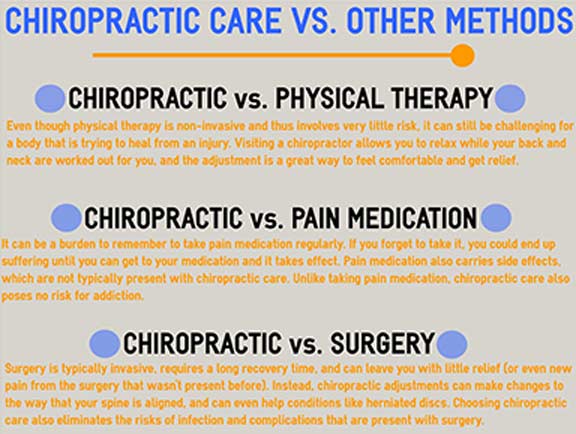The Impact Of Diet On Back Pain Monitoring: Foods To Include And Foods To Omit
The Impact Of Diet On Back Pain Monitoring: Foods To Include And Foods To Omit
Blog Article
Posted By-Russo Lockhart
When it concerns managing your neck and back pain, the food selections you make can substantially impact just how you really feel each day. Visualize having the ability to ease your pain merely by changing what you eat. By understanding the function of nourishment in back pain monitoring and understanding which foods to integrate or stay away from, you can take aggressive steps towards a much healthier and extra comfortable way of life. The connection between nutrition and back health is much more extensive than you might recognize-- let's explore just how certain foods can either soothe or aggravate your back pain.
Value of Nutrition in Neck And Back Pain
Nourishment plays an important role in taking care of neck and back pain. Your diet can dramatically impact inflammation levels and overall discomfort levels in your back. Taking in a well balanced diet regimen rich in nutrients like vitamins D and K, calcium, magnesium, and omega-3 fats can help reduce swelling and enhance bones, which are essential for back health and wellness.
Additionally, keeping a healthy and balanced weight via appropriate nutrition can minimize tension on your spinal column, decreasing the danger of pain in the back.
Furthermore, certain nutrients like anti-oxidants located in vegetables and fruits can assist fight oxidative tension and promote recovery in the body, including the back muscular tissues and spine.
On the other hand, taking in excessive quantities of refined foods, sugary beverages, and unhealthy fats can add to swelling and weight gain, intensifying back pain.
Foods to Consume for Back Wellness
To sustain a healthy back, including nutrient-rich foods right into your everyday meals is crucial. Including foods high in antioxidants like berries, spinach, and kale can help reduce swelling in your back, relieving discomfort and pain. Omega-3 fats found in fatty fish such as salmon and mackerel have anti-inflammatory buildings that can profit your back wellness.
Additionally, eating nuts and seeds like almonds, walnuts, and chia seeds supplies essential nutrients like magnesium and vitamin E, which sustain muscular tissue function and decrease oxidative tension. Including lean proteins such as poultry, turkey, and tofu can aid in muscle repair service and upkeep, advertising a strong back.
https://what-does-a-chiropractor40518.jaiblogs.com/58204516/gaining-viewpoint-a-chiropractic-physician-s-every-day-life-revealed-in-an-interview to include milk or strengthened plant-based alternatives for calcium to support bone health and wellness. Last but not least, moisten with a lot of water to keep your spine discs hydrated and operating optimally. By consisting of these nutrient-dense foods in your diet regimen, you can nourish your back and support total back health.
Foods to Avoid for Neck And Back Pain
Choose avoiding processed foods high in added sugars and trans fats when seeking relief from back pain. read this article of foods can add to swelling in the body, which might aggravate neck and back pain. Say no to sugary snacks sweet, pastries, and sugary drinks, along with fast food things like hamburgers, fries, and fried chicken that are usually loaded with trans fats.
Furthermore, stay away from foods having high levels of polished carbs, such as white bread, pasta, and pastries, as they can surge blood glucose levels and possibly intensify inflammation in the body.
visit my web page 's likewise important to restrict your consumption of foods high in hydrogenated fats, like red meat and full-fat dairy products, as they can add to swelling. Refined foods like delicatessens meats, chips, and packaged snacks are typically high in hydrogenated fats and must be consumed in small amounts.
Final thought
In conclusion, focusing on your diet plan and making smart food choices can have a considerable influence on managing back pain. By integrating nutrient-rich foods like berries, fatty fish, nuts, and lean proteins, and avoiding processed and sweet things, you can help in reducing swelling and support overall back health. Keep in mind, what you consume plays a crucial function in just how you really feel, so make certain to prioritize your nutrition for a much healthier back.
